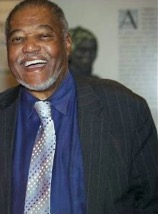
by Jackie L. Williams, Ph.D.
Southwest Washington is home to notable African Americans who have made significant contributions in human and civil rights, social justice, law, education, music, and health care such as Joe Madison “The Black Eagle,” Dr. Dorothy Height, Justice Thurgood Marshall, Rev. James Dent, Dick Gregory, and Marvin Gaye.
Charles “Chuck” Hicks, known as “Mr. Black History,” calls Southwest home as well and thrives as a historian, a radio personality, and a community organizer who has a dedication in making a difference in aging policy. As a recognition of his commitment to improving healthcare, Hicks has been appointed by Mayor Muriel Bowser as a public member of the DC Commission on Aging.
Helping shape community healthcare policy has always been a part of Hicks’ grassroots organizing where he is founder of Bread for the Soul. This community-based organization provides support for children and families living with HIV/AIDS. In terms of the Commission on Aging, Hicks is one of the fifteen members appointed to serve a three-year term. The Commission is responsible for advising the Mayor, Director of the Department of Aging and Community Living, Council of the DC, and an advocate for residents who have concerns for the aged.
As a participating member, Hicks works with fellow Commission members to submit an annual report of the analysis of needs of the aged; advise regarding partnerships with federal, state, and the private sector; comply with the Older Americans Act; conduct public hearings and forums regarding health, safety, and welfare of the aged; ensure that cases of neglect and abuse of the aged and incidents of bias against the aged is a priority; provide input about legislation, regulations, and program policies as they relate to health, safety, and welfare of the aged.
Hicks’ love for history began as a ninth grader in Bogalusa, Louisiana with an interest in taking family photos and recording stories. These stories about the Hicks family include documenting his father’s activism in the civil rights movement. Through his work in the DC community, he continues his family legacy by standing on the shoulders of his father who lays the foundation for his life journey as a historian and community activist.
As a result of his father’s participation in the civil rights movement’s Bogalusa community boycotts, Hicks was forced to halt his studies and leave Southern University, a historically Black college and university in Baton Rouge, Louisiana. From the “Jim and Jane Crow” of the deep South to the Northeast, he was accepted to Syracuse University in New York, where he earned a bachelor’s and a master’s degree. During his matriculation, Hicks became the first African American to be elected as student body president in the history of the university. Most recently, as a prestigious honor, Syracuse University historians are working with Hicks to house his papers which span more than 50 years.
After graduating Syracuse, Hicks decided to move to Washington, DC where he served as a Black History expert for the Martin Luther King Library and president of the American Federation of State, County, and Municipal Employees (AFSCME) union for the DC Public library. During his career, he also served as president, AFSCME District Council 20; coordinator, Million Man March in 1995; honoree, Washington, DC Hall of Fame; and honoree, Martin Luther King Jr. permanent exhibit as a Washington, DC History Maker.
In a recent conversation with Hicks, he recalled his community organizing work with former Southwest resident Dr. Dorothy Height who served as a civil rights activist and president of the National Council of Negro Women at the peak of the movement. Her life-long advice to him was “always be sensitive to all people while you are at the top and when you fall people will be supportive of you.” An example of their grassroots collaboration was organizing the Inaugural Black Family Reunion Celebration on the National Mall in 1986.
Hicks also highlights two other Southwest residents who inspire his work as a community organizer – Attorney Johnny Barnes and Ward 6 Councilmember Charles Allen. He admires Attorney Barnes, who he refers to as the “Poor People’s Lawyer,” for his unwavering contributions to help the least of these. Allen continues to support Hicks’ leadership supporting children and families living with HIV/AIDS and the DC Commission on Aging.

